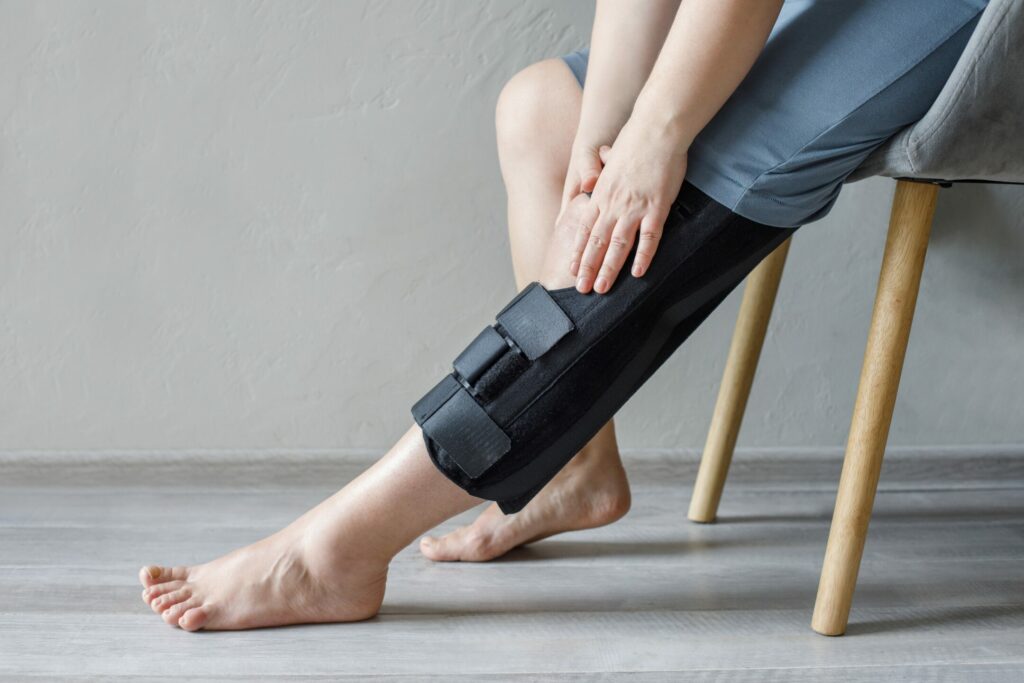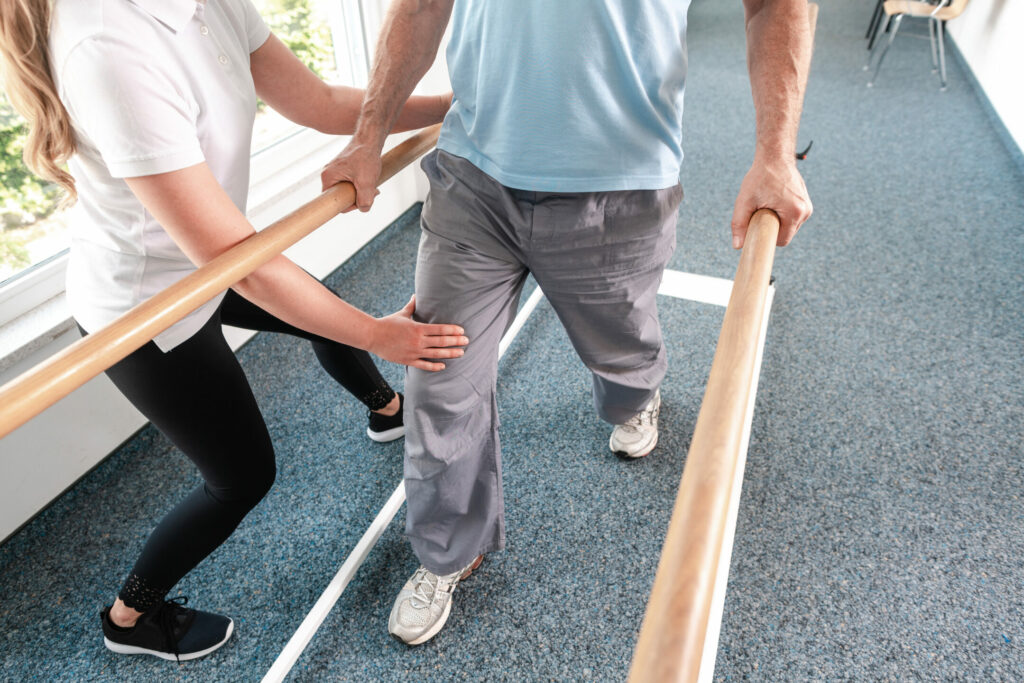Use our convenient online scheduler to book an appointment now.
Watch this video as certified physical therapist Chris Marino provides more insights into the top five mistakes he sees patients make, including when they don’t prioritize fluid mobility and range of motion exercises, which are necessary to help reduce swelling and increase joint mobility.
Undergoing knee replacement surgery is a significant step toward regaining mobility and reducing pain. However, being aware of common mistakes that can hinder your recovery is essential. In this article, we’ll discuss the top 5 mistakes after knee replacement surgery, including bonus insights from Town Center Orthopaedic’s certified physical therapist Chris Marino.
What Not To Do After Knee Replacement Surgery To Get Better Fast

The recovery time will vary based on multiple factors, including your:
- Level of activity, flexibility, and conditioning prior to surgery.
- Your age.
- Any other health conditions.
It’s important to follow your doctor’s instructions and take the right steps during your recovery period by avoiding these top 5 mistakes after knee replacement.
Not Having a Plan in Place
One of the most common mistakes after a knee replacement is not having a plan in place. Many patients need to consider their long-term needs before focusing on the immediate recovery period. Without a plan for rehabilitation, physical therapy, and lifestyle changes, it can be difficult to get back to your regular activities and maintain good health. It’s also important to be patient with yourself as you heal.
Many people also have unrealistic expectations regarding knee replacement surgery. They believe it will immediately relieve their pain and eliminate any mobility issues—but that’s not always the case. Recovering from knee replacement surgery takes time and requires patience. Additionally, you may need to make lifestyle changes as part of your plan, such as losing weight, in order for the surgery to have the desired effect.
Pain Medication Timing: Taking Too Much or Stopping Too Soon
A common mistake many individuals make is mismanaging pain medication. While managing pain after knee replacement surgery is crucial, it is equally important to follow the prescribed dosage and timing to avoid dependency and potential complications. Patients should speak with their physical therapist and provider about their concerns regarding increasing pain with therapy, as the exercises can be adapted to fit the patient’s capabilities.
Icing: Proper Timing and Duration
Icing your knee is an effective way to reduce swelling and manage postoperative pain. However, it is crucial to understand the correct timing and duration for icing. Some patients only ice when it hurts rather than following a scheduled routine. Others ice 24 hours a day.
In reality, patients should ice their knees in 20- to 30-minute bouts with at least an hour-long break between sessions. Icing is meant to decrease inflammation. However, if a patient ices their knee for too long, it can damage the surface tissue, along with increasing blood flow to the joint, causing an increase in swelling.
Giving up Assistive Devices Too Quickly
Regaining independence after knee replacement surgery is a priority. However, prematurely abandoning assistive devices, such as crutches or walkers, can lead to compensatory patterns and improper gait mechanics. It’s critical to focus on normalizing your gait before eliminating these devices. Patients who rush their recovery and ditch assistive devices too soon may hinder their recovery because they have yet to fully develop proper strength in their legs.
Generally, patients focus on normalizing their walking mechanics, also known as their gait. Gaining full hip extension, knee extension, and ankle mobility will improve your ability to use your leg properly and reduce the feeling of instability with standing and walking.
Rushing Back To Work and Driving
Returning to work and driving are significant recovery milestones. However, it’s vital to consider the physical demands of your job and allow sufficient time for your knee to heal and rehabilitate. Discuss a suitable knee replacement recovery timeline for returning to work with your healthcare team. Typically, patients should wait four to six weeks before returning to work full-time.
How Not to Have a “Worst Day” After Knee Replacement—Call TCO

Are you ready to speak to a joint replacement specialist at one of our convenient locations in Ashburn, Centreville, Fairfax, and Reston about your knee? We can help put your mind at ease about the surgery and your recovery. To schedule an appointment, call us at any time at (571) 250-5660 or request an appointment online. We look forward to helping you in every part of your journey back to knee health!
Join our Mailing List
TCO provides patients with orthopedic problems the trusted resources and patient-centered advice they need to “Feel Better. Move Better. Be Better.”
© 2024 Town Center Orthopaedics | All Rights Reserved


